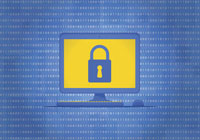Editor’s note: Dentists first and foremost may see themselves as clinicians. Nevertheless, it’s important that they and their office managers recognize the signs of cyber security risks and take necessary precautions to protect their practice.
 Stuart J. Oberman, Esq. handles a wide range of legal issues for the dental profession including employment law, practice sales, OSHA and HIPAA compliance, real estate transactions, lease agreements, non-compete agreements, dental board complaints and professional corporations.
Stuart J. Oberman, Esq. handles a wide range of legal issues for the dental profession including employment law, practice sales, OSHA and HIPAA compliance, real estate transactions, lease agreements, non-compete agreements, dental board complaints and professional corporations.
All types of malware have one thing in common; they try to compromise the security of office computers. Malware is a term used for various types of cyber security risks, such as viruses, Trojan horses, worms, adware, ransomware and spyware. Malware is malicious software that is engineered to allow hackers to search through dental practice data. All practice owners should learn to be proactive regarding a malware intrusion.
Practice owners should be aware of some signs that can indicate a malware problem. Although they might not know how malware has penetrated their device, most of the time, its presence is pretty obvious. Practice owners might notice a few changes on their computer, including strange ads or pop-up windows, or changes to their browser. Their computer may slow down, as well. All signs should be taken seriously, and if one suspects that malware has been installed or has penetrated his or her computer, he or she should turn it off immediately and disconnect it from the Internet.
Malware is usually installed unintentionally or accidentally, simply by clicking on a link. Sometimes seemingly harmless downloads – such as screen savers, toolbars and torrents – are actually malware. It may also be installed on a practice’s computer if the antivirus/ malware software has not been updated. Once malware is installed on a computer, it can lead to various intrusions, including additional malware. The best thing a dental practice owner can do is try and fix the problem as soon as signs of malware are present.
Practice owners can prevent malware from being installed on their computer system by taking the following steps:
- Install antivirus/anti-malware software.
- Run weekly diagnostic scans with the antivirus/ anti-malware software.
- Use the Internet cautiously. If something looks suspicious, don’t click on it.
- Keep all information safe with encryption firewalls and protect all accounts with complex, unique passwords
Stuart J. Oberman, Esq. handles a wide range of legal issues for the dental profession including employment law, practice sales, OSHA and HIPAA compliance, real estate transactions, lease agreements, non-compete agreements, dental board complaints and professional corporations.

